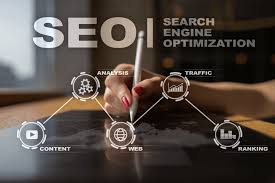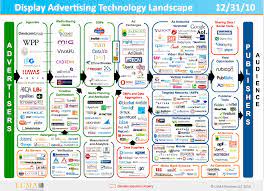The Power of PPC in Digital Marketing
Pay-Per-Click (PPC) advertising has become a cornerstone of digital marketing strategies for businesses looking to enhance their online presence and drive targeted traffic to their websites. PPC offers a cost-effective and efficient way to reach potential customers at the right moment with the right message. Let’s delve into the key aspects of PPC and how it can benefit your business.
What is PPC?
PPC is a form of online advertising where advertisers pay a fee each time their ad is clicked. It allows businesses to bid for ad placement in search engine results pages or on relevant websites, targeting specific keywords or demographics. This model ensures that advertisers only pay when their ad generates clicks, making it a measurable and results-driven marketing tactic.
The Benefits of PPC
Targeted Reach: With PPC, you can target your ads based on factors such as keywords, location, device, time of day, and more. This precision targeting helps you reach your ideal audience and maximise the impact of your campaigns.
Immediate Results: Unlike organic search engine optimisation (SEO) efforts that take time to yield results, PPC campaigns can generate immediate traffic to your website. This makes PPC an ideal choice for businesses looking for quick wins and instant visibility.
Cost-Effective: With PPC, you have full control over your budget and can set limits on how much you’re willing to spend. Additionally, since you only pay when someone clicks on your ad, you can ensure that your marketing budget is being used efficiently.
Key Strategies for Successful PPC Campaigns
- Keyword Research: Conduct thorough keyword research to identify relevant terms that align with your business goals and target audience.
- Compelling Ad Copy: Craft engaging ad copy that entices users to click on your ads and visit your website.
- Landing Page Optimisation: Create dedicated landing pages that are tailored to match the messaging of your ads and encourage conversions.
- Continuous Monitoring and Optimisation: Regularly monitor the performance of your PPC campaigns and make adjustments based on data insights to improve results over time.
In Conclusion
PPC remains a powerful tool in the digital marketer’s arsenal, offering unparalleled targeting capabilities, immediate results, and cost-effective solutions for businesses seeking to boost their online visibility. By implementing strategic PPC campaigns alongside other digital marketing efforts, businesses can drive quality traffic, increase conversions, and achieve their marketing objectives effectively.
8 Key Advantages of PPC in Digital Marketing: Boosting Visibility and Maximising ROI
- Highly targeted advertising to reach specific audiences
- Immediate visibility and traffic generation for websites
- Cost-effective as advertisers only pay when their ad is clicked
- Control over budget and spending limits for campaigns
- Measurable results with detailed analytics and performance tracking
- Ability to adjust and optimise campaigns in real-time for better outcomes
- Enhanced brand awareness through increased online presence
- Competitive advantage by outbidding competitors for top ad placements
Challenges of PPC in Digital Marketing: Costs, Risks, and Sustainability Concerns
- High competition for popular keywords can lead to increased bid costs.
- Click fraud is a potential risk, where competitors or bots click on ads to deplete budgets.
- PPC campaigns require ongoing monitoring and adjustment to maintain effectiveness.
- Initial set-up and management of PPC campaigns can be time-consuming and complex.
- PPC results are not sustainable long-term, unlike organic SEO efforts that can provide lasting benefits.
- Budget constraints may limit the reach and frequency of PPC campaigns, impacting overall performance.
Highly targeted advertising to reach specific audiences
One of the key advantages of PPC in digital marketing is its ability to facilitate highly targeted advertising, allowing businesses to reach specific audiences with precision. By leveraging targeting options such as keywords, demographics, location, and interests, advertisers can tailor their ads to resonate with the right audience at the right time. This targeted approach not only increases the relevance of the ads but also enhances the likelihood of engaging potential customers who are more likely to convert. Ultimately, by reaching specific audiences through PPC campaigns, businesses can maximise their ROI and drive meaningful results in their digital marketing efforts.
Immediate visibility and traffic generation for websites
One of the key advantages of PPC in digital marketing is its ability to provide immediate visibility and traffic generation for websites. Unlike organic methods like SEO that require time to build momentum, PPC campaigns can instantly place your ads in front of your target audience, driving relevant traffic to your website almost immediately. This rapid visibility can be particularly beneficial for businesses looking to quickly increase their online presence and attract potential customers without waiting for long-term SEO strategies to take effect.
Cost-effective as advertisers only pay when their ad is clicked
One significant advantage of PPC in digital marketing is its cost-effectiveness, as advertisers are charged only when a user clicks on their ad. This pay-per-click model ensures that businesses are not wasting their marketing budget on impressions that do not result in engagement. By paying only for actual clicks, advertisers can maximise the efficiency of their advertising spend and achieve a higher return on investment. This feature makes PPC an attractive option for businesses looking to drive targeted traffic to their websites while maintaining control over their advertising costs.
Control over budget and spending limits for campaigns
One significant advantage of PPC in digital marketing is the ability to exercise precise control over budget allocation and spending limits for campaigns. This feature empowers businesses to set specific budgets based on their financial capabilities and marketing objectives. By defining spending limits, advertisers can ensure that their campaigns remain within budget constraints while maximising the return on investment. This level of control enables businesses to manage their advertising expenditure efficiently and optimise their campaign performance effectively.
Measurable results with detailed analytics and performance tracking
One significant advantage of incorporating Pay-Per-Click (PPC) advertising into your digital marketing strategy is the ability to obtain measurable results through detailed analytics and performance tracking. With PPC campaigns, businesses can access comprehensive data on various metrics such as click-through rates, conversion rates, cost per acquisition, and more. This level of insight allows marketers to evaluate the effectiveness of their campaigns in real-time, identify areas for improvement, and make data-driven decisions to maximise ROI. By leveraging detailed analytics and performance tracking in PPC, businesses can refine their strategies, allocate budgets more efficiently, and achieve tangible results that align with their marketing objectives.
Ability to adjust and optimise campaigns in real-time for better outcomes
One of the key advantages of PPC in digital marketing is the ability to adjust and optimise campaigns in real-time for improved outcomes. Unlike traditional marketing methods, PPC allows marketers to monitor campaign performance instantly and make necessary adjustments on the fly. This agility enables businesses to react swiftly to changing market conditions, audience behaviour, and campaign effectiveness, ensuring that resources are allocated efficiently and results are maximised. By leveraging real-time data insights, businesses can fine-tune their PPC strategies for optimal performance and drive better overall outcomes in their digital marketing efforts.
Enhanced brand awareness through increased online presence
One significant advantage of utilising PPC in digital marketing is the ability to enhance brand awareness by expanding online presence. By strategically placing targeted ads across search engine results pages and relevant websites, businesses can increase their visibility to a wider audience. This heightened online presence not only boosts brand recognition but also reinforces brand credibility and trust among potential customers. Through PPC campaigns, businesses can effectively establish a strong digital footprint and solidify their position in the competitive online landscape.
Competitive advantage by outbidding competitors for top ad placements
In the realm of digital marketing, Pay-Per-Click (PPC) advertising offers businesses a significant competitive advantage by allowing them to outbid competitors for top ad placements. By strategically bidding higher for relevant keywords, businesses can secure prime positions in search engine results pages, increasing visibility and attracting valuable clicks from potential customers. This proactive approach not only ensures prominent placement but also enables businesses to outshine competitors and capture the attention of their target audience effectively.
High competition for popular keywords can lead to increased bid costs.
In the realm of digital marketing, one notable drawback of Pay-Per-Click (PPC) advertising is the heightened competition for popular keywords, which often results in escalated bid costs. As businesses vie for visibility on search engine results pages, the demand for coveted keywords intensifies, driving up the price per click. This increased bid cost can pose a challenge for advertisers with limited budgets, as they may struggle to compete effectively against larger competitors willing to invest more in their PPC campaigns. Adapting strategies to target niche or long-tail keywords can offer a workaround to mitigate the impact of high competition and bid costs in the dynamic landscape of PPC advertising.
Click fraud is a potential risk, where competitors or bots click on ads to deplete budgets.
In the realm of PPC advertising, one significant drawback is the looming threat of click fraud. This unethical practice involves competitors or automated bots clicking on ads with the malicious intent to exhaust a business’s advertising budget without generating genuine leads or conversions. Click fraud not only distorts campaign performance metrics but also poses a financial risk to advertisers by depleting their resources on fraudulent clicks. Businesses must remain vigilant and employ robust monitoring tools to detect and mitigate instances of click fraud to safeguard their marketing investments and ensure the integrity of their PPC campaigns.
PPC campaigns require ongoing monitoring and adjustment to maintain effectiveness.
One significant drawback of PPC in digital marketing is the continuous need for monitoring and adjustment to sustain its effectiveness. PPC campaigns demand regular attention to track performance metrics, analyse data, and make necessary tweaks to optimise results. This ongoing monitoring process can be time-consuming and resource-intensive, requiring constant vigilance to ensure that the campaigns are delivering the desired outcomes. Failure to consistently monitor and adjust PPC campaigns can lead to wasted ad spend, suboptimal results, and missed opportunities for reaching target audiences effectively.
Initial set-up and management of PPC campaigns can be time-consuming and complex.
In the realm of digital marketing, one notable drawback of PPC advertising is the significant time and complexity involved in setting up and managing PPC campaigns. From conducting thorough keyword research to crafting compelling ad copy, creating targeted landing pages, and continuously monitoring campaign performance, the process demands meticulous attention to detail and strategic decision-making. The intricacies of optimising bids, adjusting targeting parameters, and analysing data require expertise and ongoing effort, making the initial set-up and management of PPC campaigns a time-consuming endeavour that can pose challenges for businesses looking to navigate the complexities of digital advertising effectively.
PPC results are not sustainable long-term, unlike organic SEO efforts that can provide lasting benefits.
One significant drawback of PPC in digital marketing is the lack of sustainable long-term results compared to organic SEO strategies. While PPC campaigns can deliver immediate traffic and visibility, the results are not as enduring as those achieved through organic SEO efforts. Organic SEO focuses on building a strong online presence through quality content, backlinks, and website optimisation, which can lead to lasting benefits such as higher search engine rankings and consistent traffic over time. In contrast, once a PPC campaign ends or the budget is exhausted, the associated traffic and visibility also diminish, highlighting the temporary nature of PPC results in comparison to the enduring impact of organic SEO efforts.
Budget constraints may limit the reach and frequency of PPC campaigns, impacting overall performance.
Budget constraints can pose a significant challenge when it comes to PPC campaigns in digital marketing. Limited budgets may restrict the reach and frequency of ads, potentially affecting the overall performance of the campaign. With a constrained budget, businesses may struggle to compete effectively for ad placement against competitors with larger budgets, leading to reduced visibility and lower click-through rates. This limitation underscores the importance of strategic budget allocation and careful planning to maximise the impact of PPC campaigns within financial constraints.




